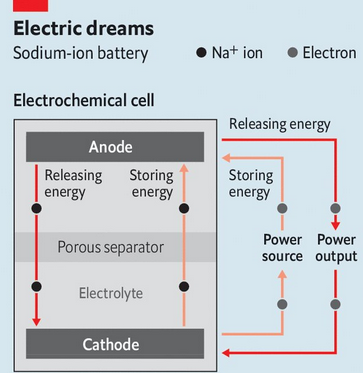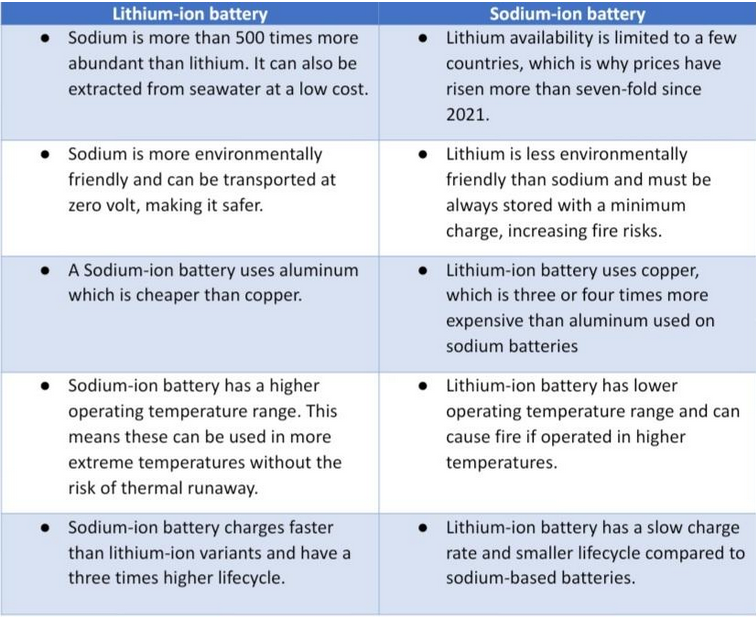News Excerpt:
Researchers at the Korea Advanced Institute of Science and Technology (KAIST) have developed a high-power hybrid sodium-ion battery that can be charged in seconds.
More about the news:
- The study was published in the journal Energy Storage Materials.
- South Korean researchers integrated anode materials typically used in batteries with cathodes suitable for supercapacitors.
- The combination helped the battery to achieve high storage capacities and rapid charge-discharge rates.
- The study indicates that the battery can be a viable next-generation alternative to lithium-ion batteries.
Sodium ion battery:
- A sodium-ion battery is a type of rechargeable battery comparable to the ubiquitous lithium-ion battery, but it uses sodium ions (Na+) as the charge carriers rather than lithium ions (Li+).
- The working principles behind and cell construction of a sodium-ion battery is virtually identical to those of lithium-ion batteries, but sodium compounds are used instead of lithium compounds.
- Sodium-ion batteries are currently emerging as a potential alternative to current lithium-ion battery technology due to their lower cost, higher availability, and reduced impact on the environment.

Significance of Sodium ion Battery:
- A sodium-ion battery would be a lot cheaper and potentially more feasible source of energy due to its comparative abundance in the world around us.
- Sodium is nearly 1000 times more abundant than lithium and is a less rare mineral.
- The sodium batteries will have a wide range of applications in various electronic devices from mobiles, electric vehicles, aerospace technologies to large-scale grid systems.
- The battery may potentially fulfil an increasing demand for low-cost electrochemical energy storage devices with high energy density for prolonged operation on a single charge and fast-chargeable power density.
- At present, the available sodium-ion batteries are poor in rechargeability as they have a low power density while providing a relatively high energy density.

|
Lithium-ion battery:
|


